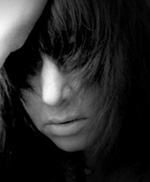Addiction and Mental Health
 For most people with alcohol problems, they often have a number of unresolved difficulties with life generally.
For most people with alcohol problems, they often have a number of unresolved difficulties with life generally.
Excessive drinking is often a symptom of other problems. Some of these may be minor of course, like an aversion to being bored, or a lack of confidence socially, or just a limited variety of ways to relax.
Some people have more deep-rooted problems behind their addictions - like anxiety, depression, lack of self-esteem etc. These can all be addressed with cognitive counselling techniques however.
Then there are many people with more serious mental health problems who end up having difficulties with alcohol. ‘Self-Medicating’ they call it in the medical profession. Basically, if life is unbearable and beyond your ability to cope with it, then people will try anything to feel better, even if it’s only for a few hours. And never mind what happens later.
Say what you like about alcohol, but one thing’s for sure - it can certainly take your mind off things if you’re feeling distressed. So if you’ve been trying to live with bipolar disorder or schizophrenia for years and nothing the medical profession has suggested has really helped that much, it’s no surprise when people turn to the bottle.
However, once that ‘self-medication’ turns into dependency, then the situation can spiral out of control. And this is where it becomes more difficult to help people solve their addiction issues. It’s not impossible of course, it just takes more work and perhaps a little more motivation.

